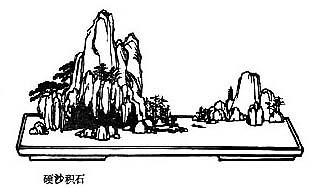孫
子
兵
法
Sun Zi 
 – The Art of War
– The Art of War
Chinese strategy explained : know yourself and the ennemy, use deception, spies, and "win with ease". Tr. Giles (en, annotated) and Amiot (fr).
Waging War
Ts`ao Kung has the note: "He who wishes to fight must first count the cost," which prepares us for the discovery that the subject of the chapter is not what we might expect from the title, but is primarily a consideration of ways and means.
Sunzi II. 3.
Now, when your weapons are dulled, your ardor damped, your strength exhausted and your treasure spent, other chieftains will spring up to take advantage of your extremity. Then no man, however wise, will be able to avert the consequences that must ensue.
Thus, though we have heard of stupid haste in war, cleverness has never been seen associated with long delays.1
Giles II.4,5.
Les coffres du prince que vous servez s'épuiseront, vos armes perdues par la rouille ne pourront plus vous servir, l'ardeur de vos soldats se ralentira, leur courage et leurs forces s'évanouiront, les provisions se consumeront, et peut-être même vous trouverez-vous réduit aux plus fâcheuses extrémités. Instruits du pitoyable état où vous serez alors, vos ennemis sortiront tout frais, fondront sur vous, et vous tailleront en pièces. Quoique jusqu'à ce jour vous ayez joui d'une grande réputation, désormais vous aurez perdu la face. En vain dans d'autres occasions aurez-vous donné des marques éclatantes de votre valeur, toute la gloire que vous aurez acquise sera effacée par ce dernier trait.
Amiot

The Art of War – Sun Zi II. 3. – Chinese on/off – Français/English
Alias Sun Tzu, Sun Wu, Sun Tse, Sunzi Bingfa, Souen Tseu, Souen Wou, 孫武.
The Book of Odes, The Analects, Great Learning, Doctrine of the Mean, Three-characters book, The Book of Changes, The Way and its Power, 300 Tang Poems, The Art of War, Thirty-Six Strategies
Welcome, help, notes, introduction, table.
Index – Contact – Top
